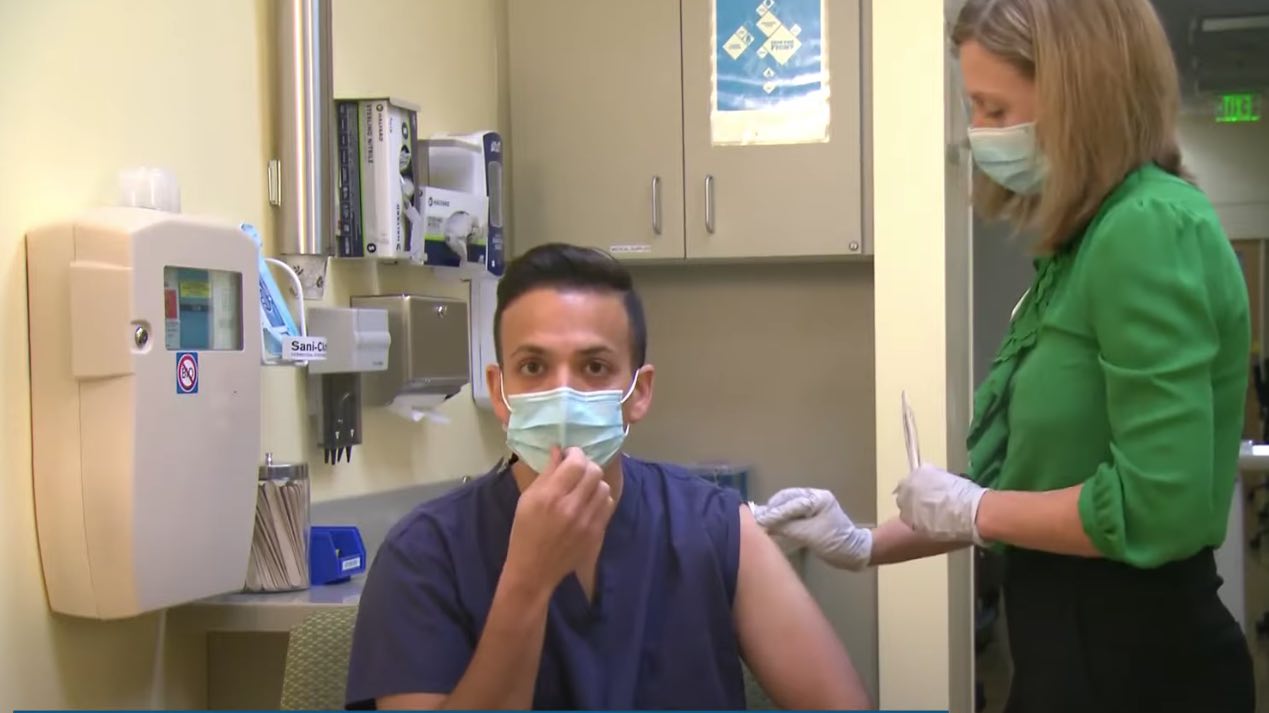Rasburicase Superior in Reducing Uric Acid
Reuters Health • The Doctor's Channel Daily Newscast
August 24, 2010 • Hospitalist, Medical Students, Nurses/NP/PA, Oncology, Oncology / Hematology, Pharmacists, Reuters Health • The Doctor's Channel Newscast
NEW YORK (Reuters Health) – Among adult patients being treated for hematologic malignancies and who are at high risk for tumor lysis syndrome with hyperuricemia, intravenous rasburicase does a better job than oral allopurinol in controlling plasma uric acid levels, according to a new study.
“This drug provides a very useful tool to manage one of the most serious complications we face when treating patients with hematologic malignancies,” Dr. Jorge Cortes commented in an email to Reuters Health.
Dr. Cortes, at M. D. Anderson Cancer Center in Houston, Texas, and colleagues note in the Journal of Clinical Oncology published online August 16th that tumor lysis syndrome, resulting from a massive release of tumor-cell contents, is a life threatening condition. Hyperuricemia is the most notable manifestation.
Rasburicase is a recombinant urate oxidase and was originally approved in the US for managing plasma uric acid in children being treated for leukemia, lymphoma and solid tumors.
The authors tested rasburicase in 275 adults with leukemia/lymphoma who were at high risk for tumor lysis syndrome. Based on the results, the US Food and Drug Administration approved rasburicase for use in adults in October 2009.
In the trial, before beginning chemotherapy, 92 patients were treated with intravenous rasburicase for 5 days; 92 received rasburicase on days 1-3 and oral allopurinol on days 3-5; and 91 were given allopurinol only on all 5 days.
Plasma uric acid response rates, defined as achieving and maintaining a uric acid level at or below 7.5 mg/dL, were 87% for rasburicase alone, 78% for rasburicase plus allopurinol, and 66% for allopurinol alone. The time to uric acid control in the three groups was 4 hours, 4 hours, and 27 hours respectively.
“Rasburicase cleared the uric acid rapidly in nearly all patients, and it showed significant superiority compared to allopurinol,” said Dr. Cortes. “Although it requires an IV administration, considering these patients are receiving chemotherapy, this did not prove to be an inconvenience to patients,” he added.
As for safety, the investigators found drug-related adverse events were infrequent; 4 with rasburicase alone, 5 with rasburicase and allopurinol, and 1 with allopurinol alone.
The authors add in their conclusion: “From our experience, the rapid reduction in uric acid to less than 1.0 mg/dL with rasburicase simplifies uric acid control by reducing the need for urinary alkalinization in patients who are often critically ill with compromised organ function.”
Reference:
Control of Plasma Uric Acid in Adults at Risk for Tumor Lysis Syndrome: Efficacy and Safety of Rasburicase Alone and Rasburicase Followed by Allopurinol Compared With Allopurinol Alone—Results of a Multicenter Phase III Study
J Clin Oncol 2010;28.
“This drug provides a very useful tool to manage one of the most serious complications we face when treating patients with hematologic malignancies,” Dr. Jorge Cortes commented in an email to Reuters Health.
Dr. Cortes, at M. D. Anderson Cancer Center in Houston, Texas, and colleagues note in the Journal of Clinical Oncology published online August 16th that tumor lysis syndrome, resulting from a massive release of tumor-cell contents, is a life threatening condition. Hyperuricemia is the most notable manifestation.
Rasburicase is a recombinant urate oxidase and was originally approved in the US for managing plasma uric acid in children being treated for leukemia, lymphoma and solid tumors.
The authors tested rasburicase in 275 adults with leukemia/lymphoma who were at high risk for tumor lysis syndrome. Based on the results, the US Food and Drug Administration approved rasburicase for use in adults in October 2009.
In the trial, before beginning chemotherapy, 92 patients were treated with intravenous rasburicase for 5 days; 92 received rasburicase on days 1-3 and oral allopurinol on days 3-5; and 91 were given allopurinol only on all 5 days.
Plasma uric acid response rates, defined as achieving and maintaining a uric acid level at or below 7.5 mg/dL, were 87% for rasburicase alone, 78% for rasburicase plus allopurinol, and 66% for allopurinol alone. The time to uric acid control in the three groups was 4 hours, 4 hours, and 27 hours respectively.
“Rasburicase cleared the uric acid rapidly in nearly all patients, and it showed significant superiority compared to allopurinol,” said Dr. Cortes. “Although it requires an IV administration, considering these patients are receiving chemotherapy, this did not prove to be an inconvenience to patients,” he added.
As for safety, the investigators found drug-related adverse events were infrequent; 4 with rasburicase alone, 5 with rasburicase and allopurinol, and 1 with allopurinol alone.
The authors add in their conclusion: “From our experience, the rapid reduction in uric acid to less than 1.0 mg/dL with rasburicase simplifies uric acid control by reducing the need for urinary alkalinization in patients who are often critically ill with compromised organ function.”
Reference:
Control of Plasma Uric Acid in Adults at Risk for Tumor Lysis Syndrome: Efficacy and Safety of Rasburicase Alone and Rasburicase Followed by Allopurinol Compared With Allopurinol Alone—Results of a Multicenter Phase III Study
J Clin Oncol 2010;28.









